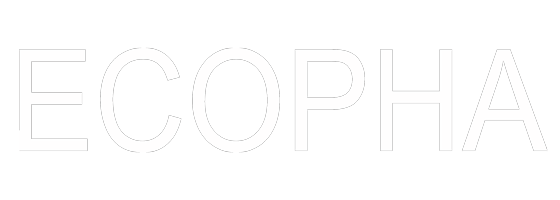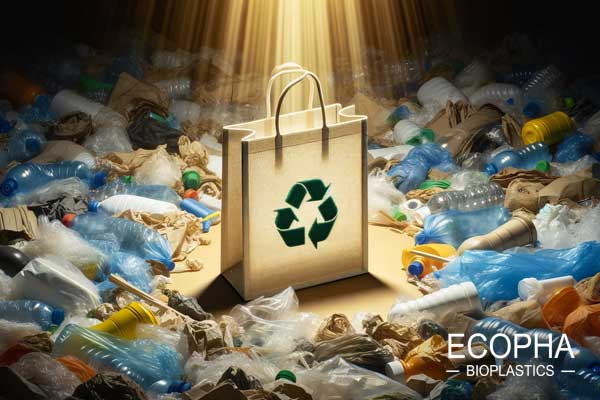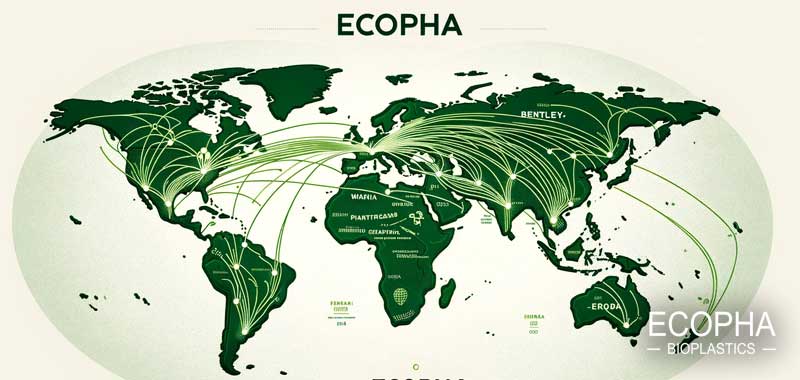From Seed to Solution - The Story of Ecopha.shop
The story of Ecopha.shop is one of transformation - from a simple vision for eco-conscious products to a platform reshaping how the world thinks about packaging and disposables. Rooted in the natural strength of bamboo, wood, paper, and plant fibers, our journey has been fueled by a commitment to eliminate waste, elevate ethics, and embrace renewable design.
What began as a small initiative to replace everyday plastic items with compostable alternatives has grown into a global marketplace that empowers vendors, informs consumers, and facilitates sustainable commerce. Along the way, we’ve overcome material, market, and supply chain challenges - all while keeping our core belief intact: products made from nature should return to nature.
Today, Ecopha.shop is more than a platform. It's a movement that reflects our journey - from fiber innovation to environmental action - and our dedication to making sustainable solutions accessible to all.
A Natural Evolution: Our Journey from Fiber Innovation
Our story begins with a problem most of the world was ignoring - the rise of plastic waste, particularly in foodservice, retail, and packaging industries. While convenient, single-use plastics have proven catastrophic for ecosystems, oceans, and even human health.
From this concern came a question that would shape everything we’ve done since:
What if the tools of modern life could come from the earth - and return to it without harm?
This question sparked the beginnings of Ecopha.shop - a venture founded in Western Australia to rethink materials, design, and the role of commerce in sustainability. Rather than look to synthetic substitutes, we turned to nature’s most abundant and renewable materials: bamboo, paper, wood, and plant fibers.
Early Days: Local Action with Global Intent
Our origins were humble. We began by supplying bamboo cutlery and kraft paper cups to local cafés and zero-waste events in Australia. At the time, compostable alternatives were limited, expensive, or hard to source reliably.
We realized that small, eco-conscious businesses needed more than products - they needed a trustworthy, scalable, and transparent supply network built for sustainability.
That realization sparked the development of our vendor-friendly marketplace, designed to connect ethical producers with businesses and individuals who share the same goals: reducing waste and restoring balance.
Material Innovation: Working With Nature, Not Against It
Unlike synthetic “eco” solutions that attempt to mimic plastic, our approach has always prioritized authentic natural materials.
We’ve invested in understanding and promoting:
- Bamboo for its rapid growth, durability, and compostability
- Wood for its strength, renewability, and FSC-certification pathways
- Kraft paper and molded pulp for recyclability and functional design
- Plant fibers like wheat straw, sugarcane bagasse, and cornstarch for lightweight, biodegradable alternatives
These materials don’t just solve waste problems - they create new models for regenerative supply chains.
Scaling Impact: From Products to Platform
As demand for sustainable options grew, so did we. From our initial lineup of 12 bamboo-based SKUs, we now support hundreds of products across multiple categories:
- Cutlery
- Cups and lids
- Trays and boxes
- Paper bags
- Napkins and accessories
But the real transformation came when we shifted from being a supplier to building an inclusive platform - Ecopha.shop - where any qualified vendor of plant-based products could launch their own storefront.
Today, we serve vendors and buyers across Australia, Southeast Asia, and select international markets - while maintaining strict criteria around product origin, sustainability, and transparency.
Milestones on Our Journey
Some key moments that shaped us:
- 2014: Launched first compostable bamboo cutlery line in WA
- 2016: Established early vendor partnerships in Malaysia and Indonesia
- 2018: Rolled out molded fiber food containers from sugarcane pulp
- 2020: Developed private-label packaging for cafés and restaurants
- 2022: Launched Ecopha.shop - our multi-vendor marketplace platform
- 2024: Crossed 1 million units sold without plastic components
Each milestone reflects a small but essential shift in the way goods can be made, distributed, and used with care for the planet.
Partnerships & Purpose
Our success is rooted in collaboration. We’ve worked with:
- Small-scale artisans using local plant fibers
- Manufacturers of FSC-certified paper and wood products
- Composting experts to help inform product disposal standards
- Policy advocates pushing for plastic bans and packaging reform
Through these partnerships, we’ve helped accelerate the shift from plastic dependency to renewable material adoption, one fork, tray, and cup at a time.
Educating the Marketplace
Beyond selling products, Ecopha is also focused on shifting behavior.
We provide:
- Clear disposal guidance (e.g., compostable vs recyclable)
- Education content for consumers and B2B clients
- Product labeling transparency (no hidden plastics or greenwashing)
- Vendor support in sustainable packaging claims and marketing
Because we believe that informed customers make better choices, and better choices create a more resilient planet.
Our Journey Ahead
We see a world where:
- Every plastic fork has a bamboo alternative
- Every foam container is replaced by a molded fiber tray
- Every paper product is responsibly sourced and clearly labeled
Our roadmap includes:
- Expanding vendor onboarding in new markets
- Enhancing analytics tools for eco-sellers
- Partnering with regional composting facilities
- Developing new product lines using underutilized fibers
We remain committed to innovation - but always with nature as the guide.
FAQs
When did Ecopha.shop begin its sustainability journey?
Our journey started over a decade ago in Western Australia, initially focused on replacing plastic utensils with bamboo-based alternatives.
What are the key achievements of Ecopha so far?
Key milestones include launching Australia’s first multi-vendor natural packaging platform, scaling vendor partnerships globally, and replacing over 1 million plastic items with compostable or recyclable options.
What industries does Ecopha serve?
We serve foodservice, retail, hospitality, events, and packaging suppliers seeking plant-based alternatives to plastic.
What makes Ecopha’s approach unique?
We focus solely on natural materials - no plastic blends - and combine marketplace access, material integrity, and education into a holistic sustainability ecosystem.
What’s next for Ecopha.shop?
We aim to expand globally, innovate with new plant fiber materials, and build more partnerships with composting and recycling stakeholders to ensure full circularity.





